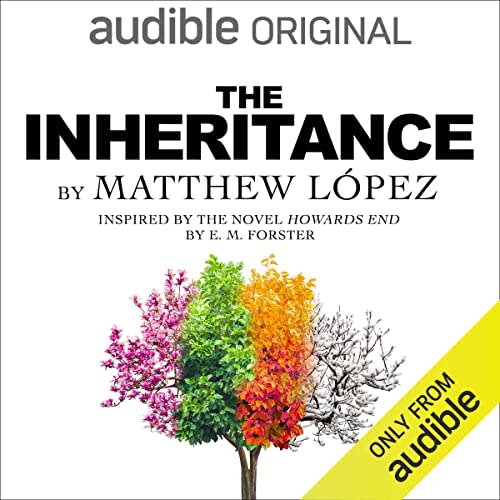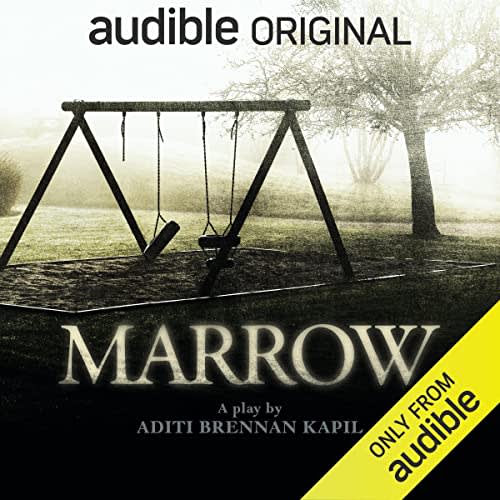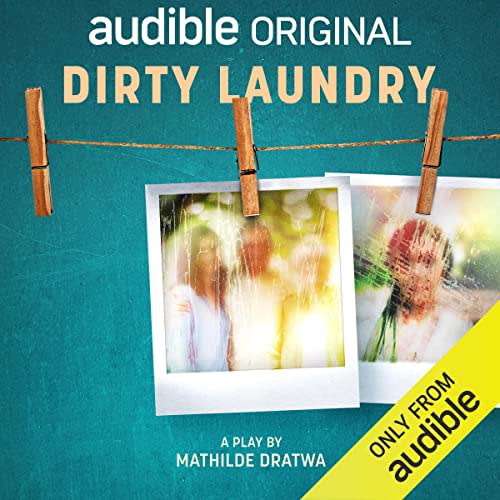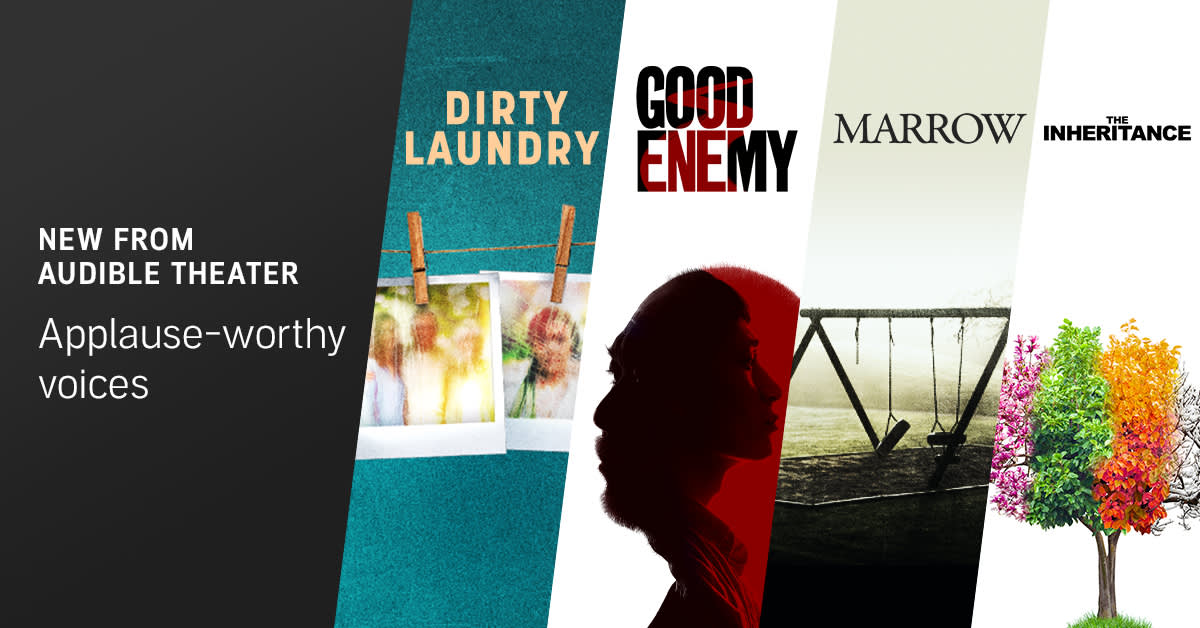This spring we’re bringing you three provocative new voices, all recipients of the Audible Emerging Playwrights Fund, as well as a Tony-winning play that is surely soon to be considered a modern classic. And while each production stands alone as an entirely unique story, all wrestle in one way or another with history, the reliability of memory, and the stories we tell ourselves, while pondering how—or if—we are able to leave our pasts behind us. Explore all four productions below, as well as everything Audible Theater has to offer here.

I honestly can’t remember the last time I’ve felt so immersed in and connected to a production as I have with this one. From the very first act, it’s apparent why Matthew López’s Tony Award-winning play The Inheritance has received so many accolades since its initial run in 2018. And though its time on Broadway was cut short by the COVID-19 pandemic, I am so thankful that it will forever be preserved and available in audio. Inspired by the plot and characters of E.M. Forster’s Howard’s End, it’s a meta-referential look at writing, queer culture, and LGBTQIA+ history as seen through the perspective of three generations of gay men in modern New York City. At the story’s center, political activist Eric Glass (played by Adam Kantor) and his flamboyant writer boyfriend Toby Darling (Juan Castano) set the stage for an epic examination of what it means—and has meant—to be a gay man in America. Between the incredible sound design, star-studded cast (including Desperate Housewives’s Tuc Watkins), and López’s knack for inviting us as listeners into the story itself, it’s hard not to get lost in the production and feel like you’re right beside the characters themselves. It’s a listen that has pulled at all of my heartstrings and that I simply cannot and do not want to get out of my head anytime soon. —Michael C.

I haven’t felt this connected to characters in a long time. Good Enemy tells multiple stories, time-jumping between 1984 and 2021, as Howard (Francis Jue) tries to improve his relationship with his daughter, Momo (Geena Quintos). As things unfold, you begin to understand that Howard’s past life in China is his ticket to a future with his daughter. It’s hard to pick my favorite part, but in a play filled with complex topics of oppression and isolation, the comedic timing of Yilong Liu’s production cannot be overlooked. From Howard meeting Momo’s boyfriend to his disdain for social media, I couldn’t help but think of my own father. I still remember teaching him Facebook and regretting it instantly. Now, I wouldn’t give up that memory, though my dad might! It’s a reminder that the unspoken bond between people matters. Human connection matters. And so does this listen. —Caitlyn L.

Even though I’ve been editing our Mystery & Thriller newsletter for several months, I am still surprised when something new and twisty comes along and makes me say, “Wait a minute,” while I rewind a couple of minutes and make sure I heard what I heard. This is what happened while I was listening to Marrow. I love the build of the story. Harriet, a young producer, gets to interview a famous thriller writer, Lili Novak. She couldn’t be happier with this great career boost. But slowly, as Harriet spends more time with Lili, something’s not quite right. She wonders if Lili can be counted on as a reliable narrator of her own story. As a listener, I wondered what was Lili’s endgame, exactly where was she going? The narrators turn in stunning performances, adding to the intensity of this unfurling, episodic drama. It was written by Aditi Brennan Kapil, and to her I say, “Brava, and more please.” —Yvonne D.

Parental loss rarely brings just overwhelming grief. Oh, it brings that too, but also a whole host of other things as well: recriminations, guilt, self-reflection, lost roles, uncertainty, historical revision, and above all, a sense of a world that is both completely shattered and utterly the same. Mathilde Dratwa explores all of this and more in Dirty Laundry. A young woman's grieving process—following the sudden death of her mother—is turned upside down when she learns that her father was having an affair for the previous six years. Suddenly, fresh hurt colors everything she thought she'd be feeling in this tumultuous time. Grief becomes a multipronged thing, able to attack her from any angle at any time, which is personified by a powerful chorus of narrative voices that poke and prod her with questions and what-ifs. Alison Pill and Reed Birney are utter perfection as they work through the stilted conversations of a grieving father and a furious (and grieving) daughter. And Marsha Mason surprises as the "other woman," earning unexpected sympathy from the listener. After all, her role, too, has changed. While there is no one cast in the role of the mother, her silent presence is strongly felt by her human-shaped absence, reminding us that ultimately this is a survivors' story, and the only way out is forward. —Emily C.




